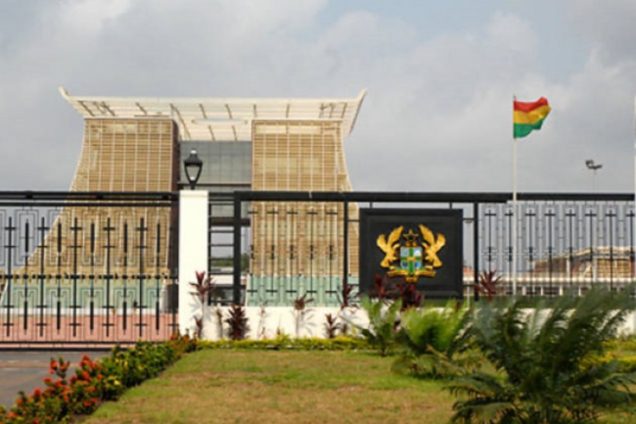
Audio By Carbonatix
Former Director of the Ghana School of Law, Kwaku Ansa-Asare, says successive heads of state have not been fit for purpose to select chief justices for the country.
According to him, heads of state from Nkrumah’s era to now have merely been selecting chief justices they hope will be loyal to them and their agenda rather than those who are loyal to upholding the constitution.
This he says has led to several Justices sacrificing their virtues and courage in order to gain the prestigious office.
Speaking on PM Express, Mr. Ansa-Asare said, “To appoint a chief justice, the person the constitution has entrusted with this very huge responsibility is not fit for purpose in the sense that the person, I'm not, you know, speaking of the current president, but successive post-independence heads of state, prime ministers, they will always choose the one they will feel comfortable with the one who will be loyal to them.
And in doing so, will sacrifice you know the qualities of virtue, courage that we all, you know, expect to find in our chief justices. I don't mean to disparage either justice Torkonoo or Yonny Kulendi, but the truth must be told.”
Mr. Ansa-Asare has called for the president’s extensive appointment powers to be curtailed in order to ensure the independence of offices such as the office of the chief justice.
“You appoint a chief justice and the judicial secretary, who is the head of the personnel of the judicial service is a relative of the person who nominates and you put the person there, you know, as a sort of guard over the chief justice. What do you expect the chief justice to do? Because the judicial secretary is supposed to be the chief scribe of the chief justice, and the judicial secretary is the president’s relative.
“You see, that is number one. Number two. In doing this, elsewhere, there's a search for the CJ, for the person, and there's a search committee. Under the constitution, if you look at Article 57 everything has been entrusted into the hands of one person and therefore that one person will wake up one morning and decide this is the person to be my chief justice regardless of the feelings of the nation. And until we are able to right this deficiency we’ll not be able to find, you know, the persons we want,” he said.
And thus to get the framework and parameters right in order to get the right caliber of persons appointed as chief justices, Mr. Ansa-Asare is advocating for the Judicial Council to be given the appointing power and not the president.
But before that, the Judicial Council, he says must be overhauled to rid of cronyism.
“So if we reconstitute or review the appointing authorities and the instrument such that the people we put there are fit for purpose. Then chief justices will not be looking over their shoulder to find out what do I do,” he said.
Latest Stories
-
Ayawaso East by-election: NPP vows not to participate in vote-buying
10 minutes -
Gideon Boako to sponsor eye surgery for 35 Tano North constituents
16 minutes -
Ayawaso East by-election: ‘Certified International Election Observer’ Koku Anyidoho applauds voting arrangements
35 minutes -
Gideon Boako organises free eye screening and surgery for Tano North constituents
46 minutes -
Today’s Front Pages: Tuesday, March 3, 2026
2 hours -
Gov’t to issue long-dated domestic bonds following expiration of DDEP restrictions – Dep Finance Minister
2 hours -
From communities to classrooms: Hearing care for all children-2026
2 hours -
Buffer Stock CEO tours schools and warehouses in Eastern Region
2 hours -
Are we tying down growth? – Finance professor flags on gold reserve policy
2 hours -
Lands Minister endorses Petroleum Hub Project to generate sustainable employment opportunities
2 hours -
Government to build 600 new basic schools to end ‘Schools Under Trees’
3 hours -
Kumasi Mayor vows to keep Kejetia Market free from highly inflammable materials
3 hours -
Gov’t to open enrolment for affordable homes under National Homeownership Fund
3 hours -
Cashew farmers remind Mahama to fulfil promise to establish Cashew Development Board
3 hours -
National Ambulance Service moves to acquire 400 new ambulances and 500 motorbikes
3 hours

